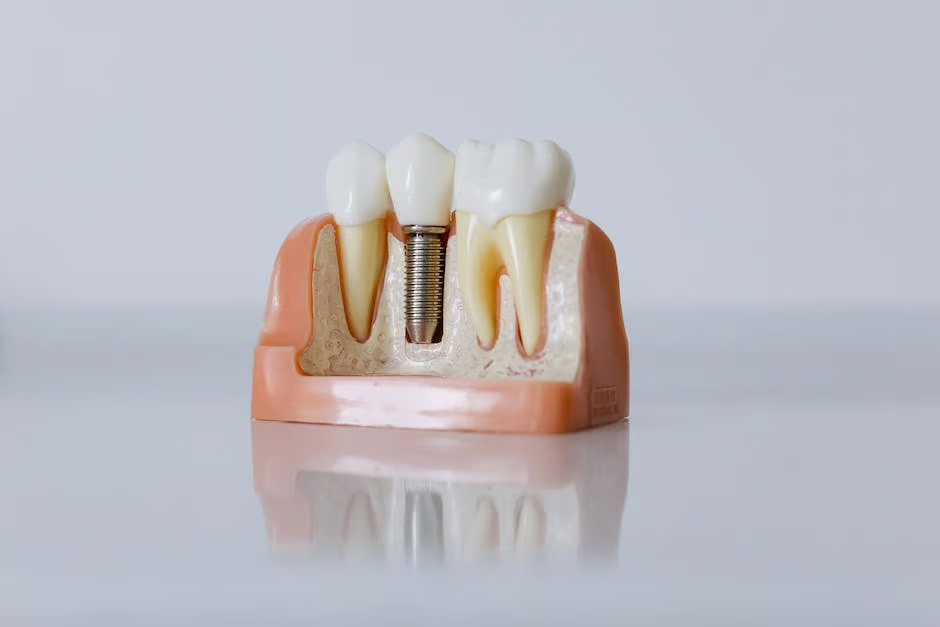Are you interested in replacing missing teeth but unsure which dental implant option is most suitable for you?
There are different types of dental implants on the market, but choosing the best one is a personal choice. Implants are one of the most common and successful tooth replacement options. Dental implants are the solution to restoring lost teeth while keeping your jaw intact.
You don’t have to have a total mouth gash before you can consider tooth replacement.
Continue reading to learn more about the different types of dental implants.
Endosteal Implants
Endosteal implants are the most commonly used form of dental implant nowadays. They entail inserting titanium screws into the jawbone. These implants serve as anchors for artificial teeth. Endosteal implants provide solid and long-lasting dental implant options for individuals with good jawbone density and depth.
Endosteal implants are selected for individuals who have healthy gums and enough bone density. They are a viable option for a single-tooth replacement or multiple-tooth replacement. It is crucial to remember that dental technology and methods are developing.
It is advised to speak with a trained dentist or oral surgeon. You can get the most up-to-date data and decide the best treatment option for your case. You can look for cosmetic dentistry that will take care of all of your general needs.
Subperiosteal Implants
Subperiosteal implants are put on top of the jawbone but beneath the gum tissue. A metal framework is placed in the jawbone. The framework becomes permanent when the gums heal.
The framework’s posts are then fitted with prosthetic teeth. Subperiosteal implants are suitable for people who do not have enough jawbone height or density for endosteal implants. This implant is placed on or above the jawbone.
It is a metal post placed under your gum and sticks through it to keep it in place. If you can’t wear ordinary dentures, lack enough natural jawbone to hold an endosteal implant, or don’t want to have a bone augmentation treatment to build up the bone. You may benefit from a subperiosteal implant.
Zygomatic Implants
Zygomatic implants are intended for those with large bone loss in their upper jaw. Zygomatic implants are linked to the zygomatic bone. It is also known as the cheekbone rather than the jawbone.
This method allows for the effective insertion of dental implants. It is a complex surgical plan that needs a trained oral and maxillofacial surgeon. Cone-beam computed tomography is used to plan implant placement by assessing the anatomy of the patient’s upper jaw.
The following are some of the uses of zygomatic implants:
Avoiding Bone Grafting
Zygomatic implants minimize the need for bone grafting treatments. It can be time-consuming and expensive, as well as healing time.
Stability and Support
These implants provide good stability. It also helps the final permanent prosthesis due to its anchoring in the robust zygomatic bone.
Restoring Aesthetics and Function
Zygomatic implants can enhance a patient’s ability to eat, talk and smile. It also restores facial looks.
Immediate Load Dental Implants
It is also known as an all-on-4 or all-on-6 implant and is intended for individuals requiring full arch repair. It is connected on the same day as the implant operation. It allows patients to leave the dentist’s office after the surgery with teeth that are working.
The traditional dental implant process entails several steps. It starts with the surgical placement of the implant in the jawbone. It is also followed by a healing period of several months to let the implant osseointegrate with the bone.
A complete set of teeth can be supported by just four or six implants per arch. Your dentist will assess your unique condition to determine whether immediate load dental implants are the best solution for you. Follow the post-operative care guidelines offered by your dental specialist.
Regular dental check-ups and proper oral hygiene habits are also essential for maintaining the implants.
Factors to Consider for Dental Implant Candidates
Several variables must be addressed before deciding if a person is a good candidate for dental implants. Here are some crucial considerations for dental implant candidates:
Bone Density and Quality
Enough bone density and quality are needed for successful implantation. Patients with low jawbone thickness may need bone grafting before having dental implants.
Oral Health
Dental implant candidates must have good oral health. Patients’ gums should be healthy. It is also free of active periodontal disease or rot.
General Health
Uncontrolled diabetes or illnesses may affect the result of dental implants. Candidates must be in fine health and disclose any issues or drugs they are taking.
Smoking Habits
Smoking can impede recovery and increase the likelihood of implant failure. Dentists ask people to quit smoking before having dental implant surgery.
Commitment to Oral Hygiene
Dental implant candidates must be dedicated to practicing good oral hygiene. Brushing, flossing, and regular dental check-ups are required to ensure the long-term success of dental implants.
Benefits of Dental Implants
Compared to more traditional tooth replacement solutions, dental implants have several uses. Some of the key benefits include:
Improved Aesthetics
Dental implants improve a patient’s smile. It makes it appear more natural in appearance and feel.
Enhanced Chewing Function
Dental implants offer secure and powerful chewing capability. It also lets patients enjoy their favorite meals without concern. It is in contrast to dentures, which can slip and limit eating.
Preservation of the Jawbone
Dental implants encourage jawbone growth, halting bone deterioration. It also preserves face shape over time.
Durability and Longevity
Dental implants are a long-term investment. With proper care, they may last a lifetime.
Increased Self-Confidence
Patients with missing teeth can regain their confidence in dental implants. It makes them feel more at ease in social settings.
Different Types of Dental Implants You Should Consider
Dental implants are the best solution for tooth replacement. Different types of dental implants are available to treat dental diseases and patient needs. Patients can select the implant type that best matches their needs and lifestyle.
Make an appointment with your dentist to learn more about the benefits of dental implants.
Did you find this article helpful? If so, check out the rest of our blog for more informative content!




